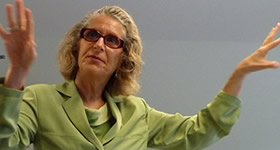There is good lobbying and bad lobbying, good lobbyists and bad ones. Check out Jacob Weisberg’s article “All Lobbyists Are Not Created Equal,” April 24, 2009 issue of Newsweek magazine.
There are lobbyists for oil companies and car companies. These lobbyists focus on the good of the company. And then there are lobbyists for democracy. These lobbyists focus on human rights and health and the common good.
Newsweek‘s Jacob Weisberg reminds us that there’s a “crucial distinction between lobbying that’s good for democracy and lobbying that perverts it.” Surely you remember the Jack Abramoff scandal and Tom DeLay’s K Street Project. That’s the bad lobbying!
The nonprofit sector is part of a healthy democracy. The most effective nonprofit organizations focus on the common good. These organizations question the for-profit and government sectors. These organizations challenge democracy to be as good as it can be.
Everyone in the nonprofit sector should know Alexis de Tocqueville, one of the foremost theorists of American democracy. In his 19th century U.S. travels, de Tocqueville observed: “In democratic countries, the science of association is the mother science; the progress of all the others depends on the progress of that one. Among the laws that rule human societies, there is one that seems more precise and clearer than all the others. In order that men be civilized or become so, the art of associating must be developed and perfected among them in the same ratio as equality of conditions increases.”
So people get together; they associate for the common good. People form organizations to advance civil society.
Roger Lohmann, in his wonderful article “The Commons: Our MIssion If We Choose to Accept It,” (The Nonprofit Quarterly, Summer 2003, www.nonprofitquarterly.org) describes five distinct attributes / dimensions of “the commons”:
1. Free and uncoerced participation
2. Common or shared purpose or mission
3. Jointly held resources or endowment
4. Participation that involves a sense of mutuality
5. Social relations characterized by justice or fairness
Everyone working in the nonprofit sector should understand the role that this sector — often called the third sector or independent sector — plays in democracy. Check out more articles about democracy in the summer 2003 and spring 2009 issues of the Nonprofit Quarterly.
Yes, the nonprofit sector is essential to a thriving democracy. And the lobbyists in the nonprofit sector — advocating for healthcare for all and women’s rights — are critical to justice and the basic tenets of democracy. The lobbyists fighting against genocide and fighting for peace aren’t seeking special rules that feather the nests of their clients.
There’s a difference in lobbyists. Not all are the same. And President Obama’s executive order to restrain lobbyists is important for Abramoff et al. But that same order deprives our democracy.

